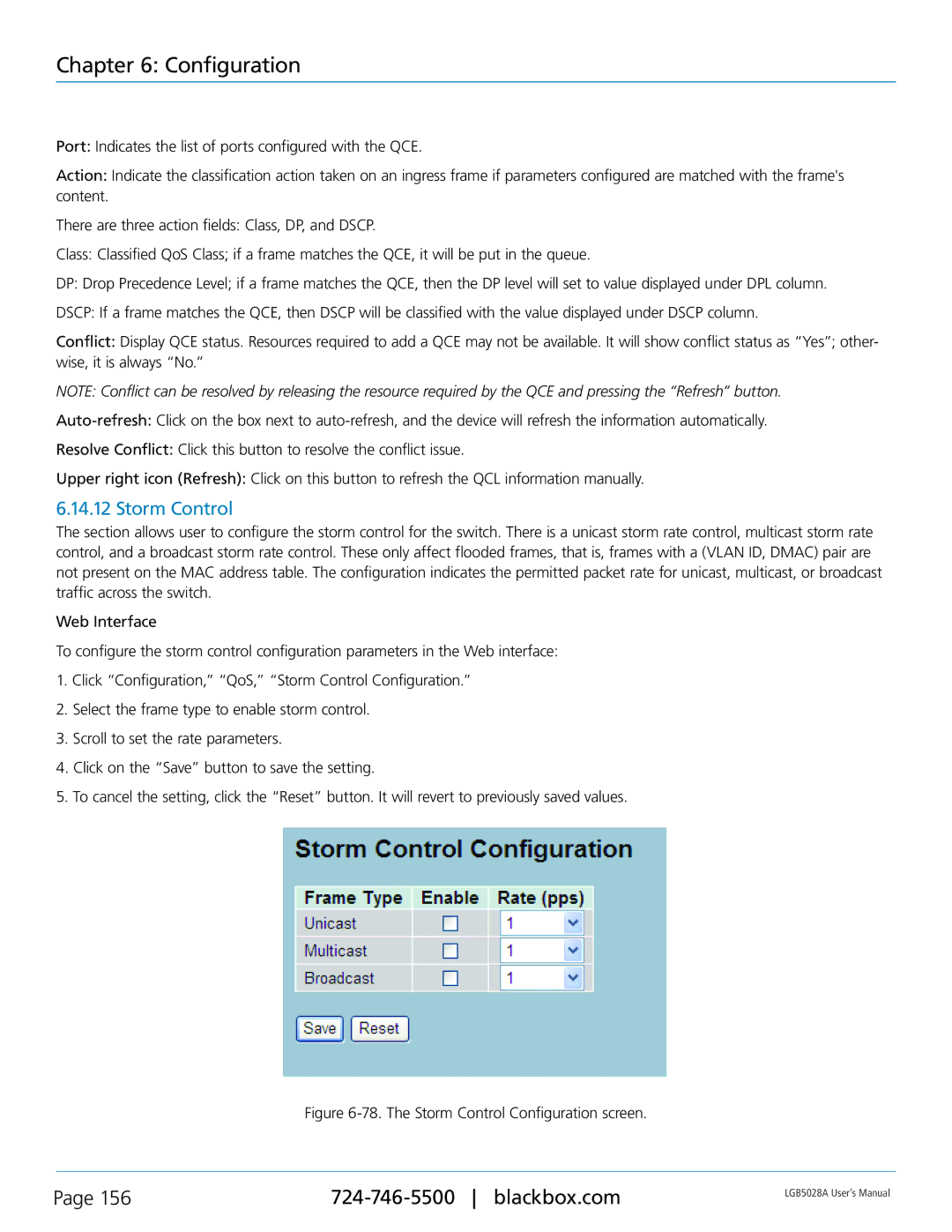
Chapter 6: Configuration
Port: Indicates the list of ports configured with the QCE.
Action: Indicate the classification action taken on an ingress frame if parameters configured are matched with the frame's content.
There are three action fields: Class, DP, and DSCP.
Class: Classified QoS Class; if a frame matches the QCE, it will be put in the queue.
DP: Drop Precedence Level; if a frame matches the QCE, then the DP level will set to value displayed under DPL column.
DSCP: If a frame matches the QCE, then DSCP will be classified with the value displayed under DSCP column.
Conflict: Display QCE status. Resources required to add a QCE may not be available. It will show conflict status as “Yes”; other- wise, it is always “No.”
NOTE: Conflict can be resolved by releasing the resource required by the QCE and pressing the “Refresh” button.
Resolve Conflict: Click this button to resolve the conflict issue.
Upper right icon (Refresh): Click on this button to refresh the QCL information manually.
6.14.12 Storm Control
The section allows user to configure the storm control for the switch. There is a unicast storm rate control, multicast storm rate control, and a broadcast storm rate control. These only affect flooded frames, that is, frames with a (VLAN ID, DMAC) pair are not present on the MAC address table. The configuration indicates the permitted packet rate for unicast, multicast, or broadcast traffic across the switch.
Web Interface
To configure the storm control configuration parameters in the Web interface:
1.Click “Configuration,” “QoS,” “Storm Control Configuration.”
2.Select the frame type to enable storm control.
3.Scroll to set the rate parameters.
4.Click on the “Save” button to save the setting.
5.To cancel the setting, click the “Reset” button. It will revert to previously saved values.
Figure 6-78. The Storm Control Configuration screen.
Page 156 | LGB5028A User‘s Manual | |
|
|
